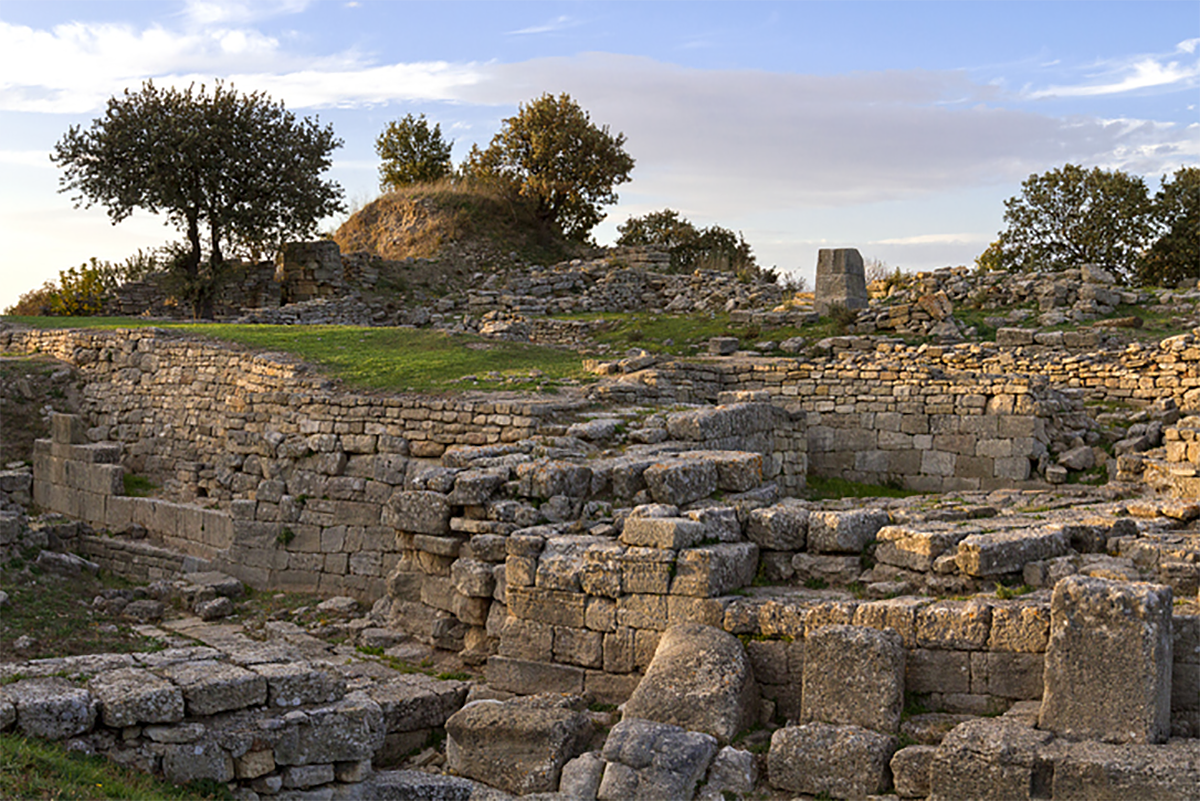Searching For Troy Hagwood Accident Information: What We Know (and Don't)
When news spreads, or even just a question pops up in our minds, about an event like an accident, it's very natural to feel a pull to find out more. People are often curious, or perhaps even concerned, about what happened, especially when a name like "Troy Hagwood accident" comes up in a search. It's almost as if we want to piece together the story, to understand the circumstances, and maybe even to offer support if we can. This desire to know, to gather details, is just a very human thing.
However, it's also true that not every event, even a serious one, becomes widely reported or easily accessible in public records. Sometimes, information about personal incidents remains private, and that's often for good reason. Our search for answers needs to balance that natural curiosity with a deep respect for individual privacy, which is, you know, really important.
This article aims to shed some light on what it means to look for information about an event like the "Troy Hagwood accident." We'll explore why such searches happen, the general landscape of public information, and also touch upon the rich history associated with the name "Troy" itself, drawing from some fascinating historical and archaeological details, though it's important to say right upfront that the information we have doesn't actually contain any specific details about a "Troy Hagwood accident."
Table of Contents
- Understanding the Search for "Troy Hagwood Accident"
- The Name "Troy": A Look at its Rich History
- Respecting Privacy and Seeking Reliable Sources
- Frequently Asked Questions
- Biography of Troy Hagwood (If Information Emerges)
- Conclusion
Understanding the Search for "Troy Hagwood Accident"
The Quest for Details: Why We Look
When someone types "Troy Hagwood accident" into a search bar, there's usually a reason behind it. It could be a friend, a family member, or perhaps just someone from the same community who heard a rumor or saw something. People, very often, want to understand what happened to others, especially when it involves a sudden or unexpected event like an accident. It's a natural human reaction, you know, to seek clarity in uncertain situations. Sometimes, too it's almost about reassurance, a desire to know if everyone involved is alright, or if there's anything the community can do to help.
This drive to gather information is pretty fundamental. We process events by trying to piece together the story, the sequence of happenings. So, when a specific name and event, like "Troy Hagwood accident," comes up, it sparks that investigative impulse. It's a bit like trying to solve a puzzle, in some respects, even if the pieces are scattered or not immediately obvious.
The Information Landscape: What's Publicly Available?
It's important to recognize that not every personal incident, even an accident, becomes a matter of public record or widespread news. Very often, details about private citizens and their personal experiences, including accidents, remain just that: private. This is, you know, quite a significant point when searching for something like "Troy Hagwood accident." Official channels, like local law enforcement or emergency services, might have records, but these are not always released to the general public, especially if there's no ongoing investigation or if it doesn't involve a major public safety concern. Therefore, specific details about a "Troy Hagwood accident" are not present in the reference text provided for this article, nor are they broadly available through typical public information avenues unless there was significant public reporting at the time.
So, when you look for information, it's really about understanding where that information might reside. Sometimes, local news outlets might cover community events, but if an incident is not deemed newsworthy on a larger scale, or if it's a private matter, it might not appear. This is why a search for "Troy Hagwood accident" might not yield immediate, clear results, and why we should always approach such searches with a sense of caution and respect for privacy.
The Name "Troy": A Look at its Rich History
From Ancient Cities to Modern Names
The name "Troy" itself carries a tremendous amount of historical weight and cultural significance, which is, you know, quite remarkable. It's best known, apparently, as the setting for the Greek myth of the Trojan War, a story that has captivated people for thousands of years. This ancient city in northwestern Anatolia holds an enduring place in literature and archaeology, and it's virtually immortalized as the setting of Homer’s Iliad, which is just incredible. According to the Iliad, the city was the site of the legendary Trojan War, where Greek forces, led by King Agamemnon, waged a ten-year siege.
The archaeological site of Troy is open to the public as a tourist destination today, and it was added to the UNESCO World Heritage List in 1998, which is a pretty big deal. It lay on trade routes between Europe and Asia, and questions of its size, wealth, and status are often discussed by historians. Troy, or Troíā in ancient Greek, Trōia in Latin, and known to the Hittites as Wilusa, is one of the most iconic cities in history, and its 4,000 years of history make it one of the most famous archaeological sites in the world. The first excavations at the site were undertaken by the famous archaeologist Heinrich Schliemann, so, you know, it has a long history of study.
Beyond the ancient city, the name "Troy" also resonates in popular culture. For instance, "Troy" is a 2004 epic historical action film directed by Wolfgang Petersen and written by David Benioff. This movie, which starred Julian Glover, Brian Cox, Nathan Jones, and Adoni Maropis, was an adaptation of Homer's great epic, following the assault on Troy by the Greek forces. So, you can see how the name has really permeated various aspects of our culture, which is quite interesting.
The Legacy of a Name
The enduring presence of the name "Troy" extends beyond ancient myths and Hollywood films. It's a name that appears in various modern contexts too, which is just kind of neat. For example, there's Troy University's College of Arts and Humanities (CAH), formerly known as the College of Communication and Fine Arts, where a world of opportunities, apparently, awaits students. Then there's the city of Troy, Michigan, where Mayor Ethan Baker was appointed to an advisory board of the United States Conference of Mayors, and residents can even visit troymi.gov/2025bond to learn more about a bond proposal. These examples show how a name rooted deeply in ancient history continues to be a part of our contemporary world, whether it's for a person, a place, or an institution. It’s a powerful name, really, one that tends to evoke strength and history, and this is why, you know, many people might choose it for their children.
Respecting Privacy and Seeking Reliable Sources
The Human Element in Reporting
When we talk about accidents, it's always good to remember the real people involved. Accidents, you know, are often deeply personal and distressing events for those directly affected and their families. So, when we search for information, especially about something like "Troy Hagwood accident," it's really important to approach it with sensitivity and respect for privacy. Not every detail needs to be public, and individuals have a right to privacy during difficult times. This means that even if information were available, we should consider the impact of sharing or seeking out every last detail, which is just, you know, a basic courtesy.
The desire to know is strong, but so too is the need for compassion. A bit of empathy goes a long way when discussing or searching for details about someone else's personal struggles. This is a topic that, you know, often comes up in conversations about online searches and information sharing.
Where to Find Trustworthy Information (If Available)
If you are looking for information about any specific event, including an accident, the best places to look are typically official sources or reputable news organizations. For instance, local police departments or emergency services might release official statements if an incident affects public safety or requires broad awareness. Similarly, established local news outlets usually report on significant community events, and they often try to verify their facts before publishing. So, you know, if there was a widely reported "Troy Hagwood accident," these would be the places to check.
It's always a good idea to be cautious of unverified information circulating on social media or less credible websites. When it comes to sensitive topics like accidents, accuracy is very important. You can learn more about responsible information sharing on our site. For general guidelines on how news organizations approach reporting on sensitive topics, you might find resources from journalistic ethics organizations helpful, for example, the Society of Professional Journalists has a code of ethics. This helps ensure that the information you find is reliable and respectful, and it's a good habit to cultivate when looking for any kind of news, frankly.
Additionally, remember that public records laws vary, and not all information is made available to everyone. Sometimes, details are sealed or restricted to protect privacy, which is a very common practice. Therefore, if specific details about "Troy Hagwood accident" are not readily found through these channels, it likely means the information is not publicly available, or perhaps the event was not widely reported. You can also link to this page for more insights into online privacy.
Frequently Asked Questions
When people search for details about an accident, they often have specific questions in mind. Here are some common inquiries that might arise:
Is that information about "Troy Hagwood accident" available to the public?
Generally, information about an accident involving a private citizen might not be widely public unless it was a major incident covered by local news or involved public safety concerns. Details about a "Troy Hagwood accident" are not in the provided text, and are not readily available in general public records online, which is a common situation for many personal events.
Where can I find reliable updates on accident reports?
For reliable updates on any accident, it's usually best to check official sources like local law enforcement press releases or established local news outlets. These sources typically provide verified information, though specific details might be limited to protect privacy, you know, as a matter of policy.
What should I do if I have information about an accident?
If you have information about an accident that you believe is important for official purposes, you should contact the relevant authorities, such as the local police department. Sharing information responsibly is very important, and it helps ensure that accurate details are handled by the proper channels, which is, you know, really the right way to go about it.
Biography of Troy Hagwood (If Information Emerges)
Personal Details and Bio Data (A Placeholder)
As we've discussed, specific biographical information about an individual named Troy Hagwood, particularly in relation to an accident, is not available in the text provided, nor is it widely accessible through public searches at this time. Therefore, a comprehensive biography or personal details table cannot be created. Any information would need to come from verified, public sources, which, you know, are not currently evident for "Troy Hagwood accident."
Should information become publicly available in the future, this section would typically include details such as:
| Category | Details |
|---|---|
| Full Name | Information Not Publicly Available |
| Date of Birth | Information Not Publicly Available |
| Occupation | Information Not Publicly Available |
| Known For | Information Not Publicly Available |
| Hometown | Information Not Publicly Available |
| Current Status | Information Not Publicly Available |
This table, you know, really serves as a template for what might be included if details about Troy Hagwood were to become public, which is, you know, just a way of showing what a typical biography might look like.
Conclusion
The search for "Troy Hagwood accident" information highlights a common human desire to understand events and connect with stories, even when details are scarce. While the name "Troy" itself carries a rich and storied history, from ancient cities to modern institutions, specific details about a "Troy Hagwood accident" are not publicly available in the information we have. It's really important to remember that not all personal events become public knowledge, and there's a strong need to respect individual privacy, especially concerning sensitive matters like accidents. When seeking information, always prioritize reliable sources and approach your search with care and empathy. If you have information relevant to official inquiries, contacting the appropriate authorities is always the right step. Ultimately, our quest for knowledge should always be balanced with respect for the people involved and the privacy they deserve.

Introduction | Interactive Map Troy

Where Was Troy And What Happened To It? - WorldAtlas

Troy Movie Wallpapers - Top Free Troy Movie Backgrounds - WallpaperAccess